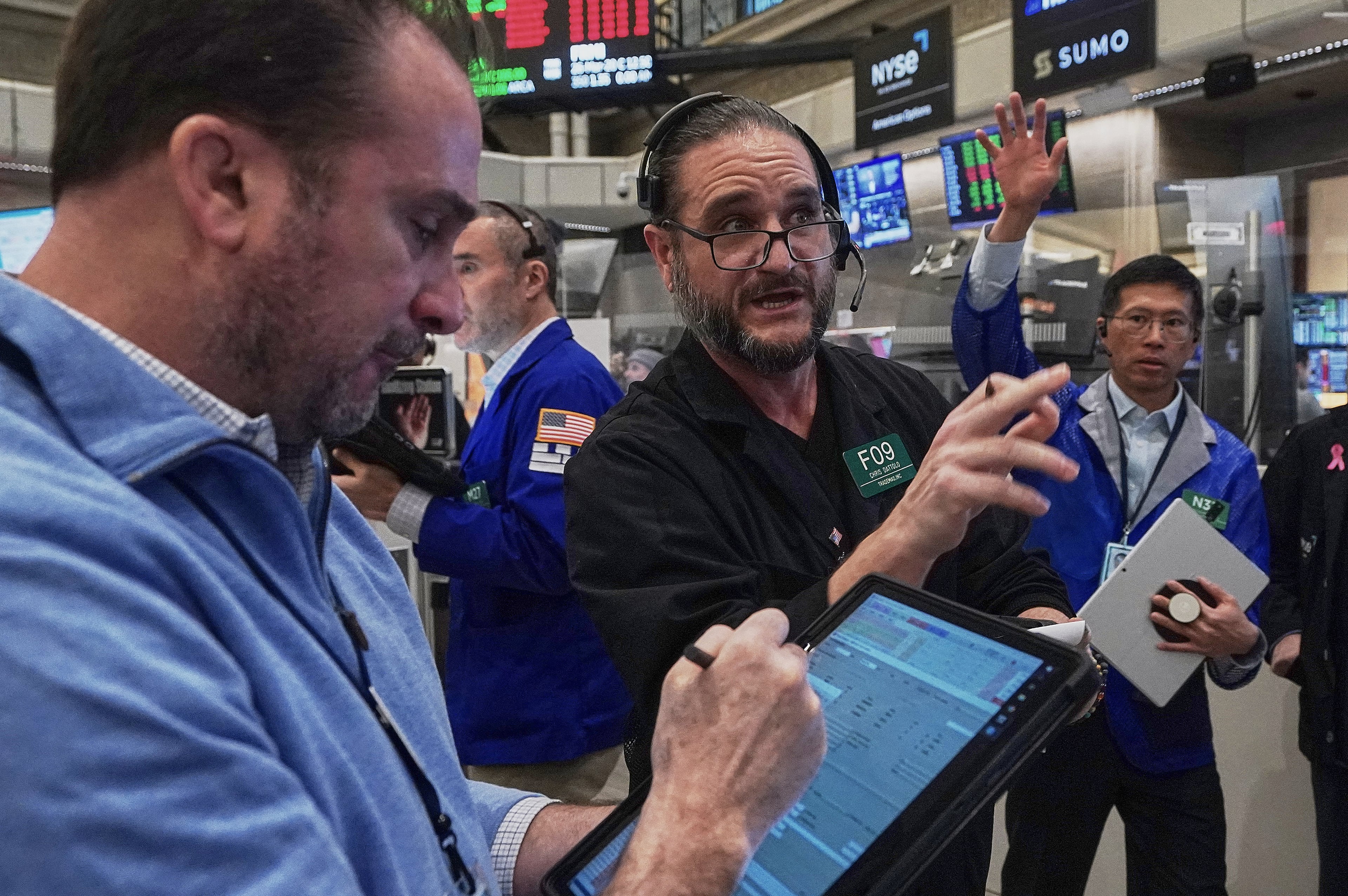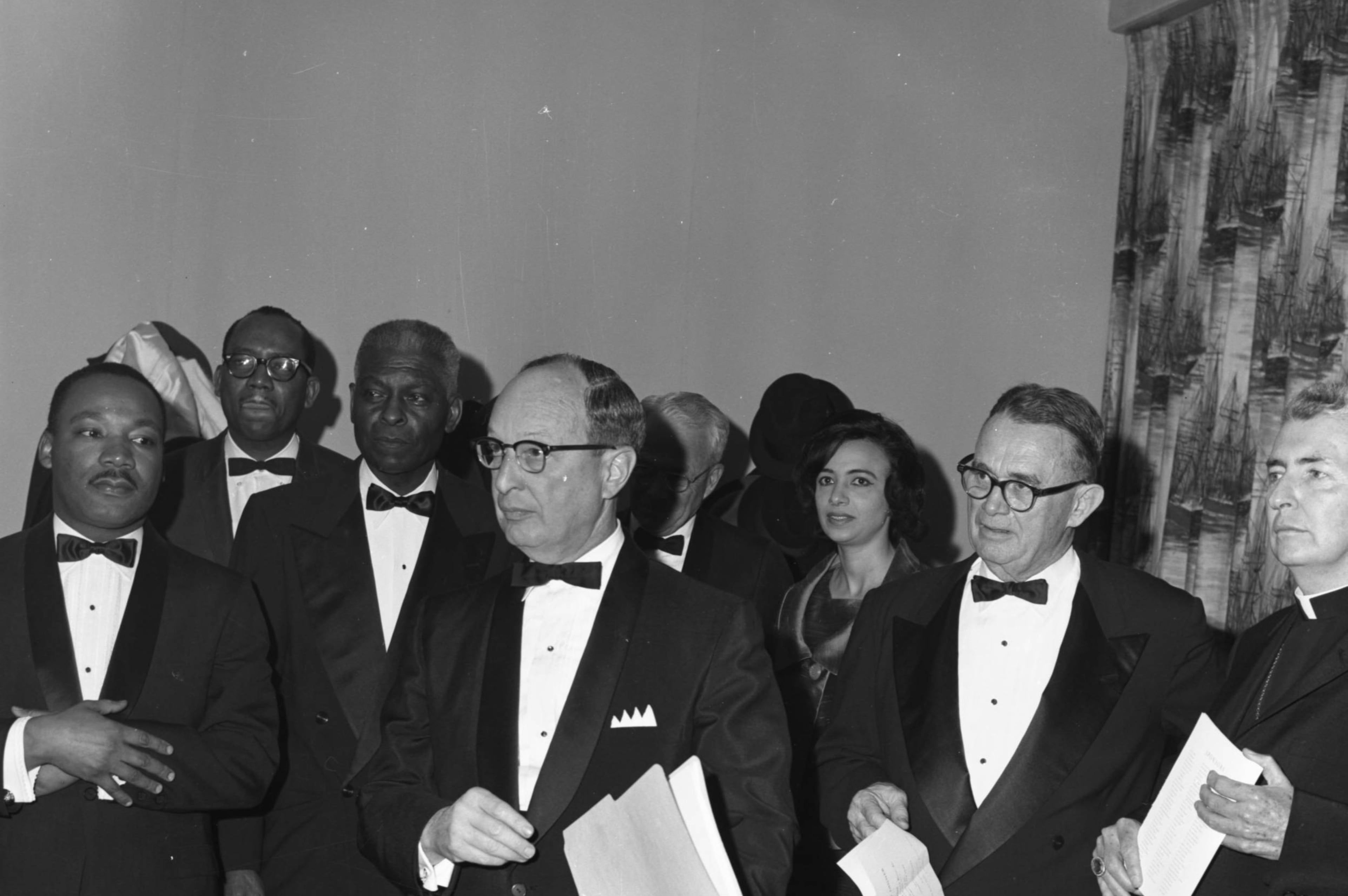Black Church PAC hosts virtual call, outlines plans to get voters to polls

The Rev. Otis Moss III shares a story about his grandfather, a Georgia native, who, in 1946, walked 20 miles to three polling places to vote and was turned away each time.
The last time, poll workers claimed he arrived just five minutes too late.
It’s a story that’s been handed down to Moss III by his father, the Rev. Otis Moss Jr., now 89, who worked with the Rev. Martin Luther King as an organizer and is a respected religious figure nationally. And it’s one that Moss III has shared with his own children.
“My father always said, ‘I vote because my own father was unable to vote’,” Moss III said. “The lore in my family is that we just don’t vote for ourselves, but we carry the aspirations of our ancestors before us.”
On Monday night, Moss III, a professor at Mercer University’s McAfee School of Theology and senior pastor of Trinity United Church of Christ in Chicago, and his father joined more than 16,000 others virtually — including pastors, gospel artists and nonprofit leaders — to plan strategies to educate and encourage people to vote in the upcoming presidential election. A special topic of the virtual meeting, led by the Black Church PAC, was the millions of unregistered, but eligible, voters.

The three-plus-hour “Win With the Black Church” call raised $550,000, said the Rev. Jamal H. Bryant, senior pastor of New Birth Missionary Baptist Church in Stonecrest and a Black Church PAC board member.
Coincidently, the video call came nearly 59 years to the day President Lyndon B. Johnson signed the landmark Voting Rights Act of 1965 that removed voting barriers, such as literacy tests, which kept millions of Black men and women from registering to vote.
“So if we mobilize our community, whichever way they decide to vote, it’s going to be an impact,” Bryant said in an earlier interview.
After Monday night’s call, Bryant added, “The primary goal focused on mobilization with a secondary call to action around generating campaign donations. This demonstrated the capacity and commitment of the faith community to electing Kamala Harris.”
Many said they felt renewed energy among voters since Vice President Harris became the presumptive Democratic presidential nominee, replacing President Joe Biden. She has drawn endorsements from Democratic leaders and voters, even a few Republicans, such as former Georgia Lt. Gov. Geoff Duncan.
Virtual meeting participants included gospel singers Erica Campbell and Brian Courtney Wilson; Barbara Williams-Skinner, CEO and co-founder of Skinner Leadership Institute; and the Rev. Vashti Murphy McKenzie.
Organizers emphasized several times in the call that they were speaking Monday night as individuals, not as representatives of their churches or nonprofits.
IRS rules prohibit churches and religious organizations from engaging in political activity or doing anything to support or oppose any candidate for public office. That rule is rarely enforced, however, according to a 2022 article in the Texas Tribune and ProPublica.
Black churches have historically played a pivotal role in getting out the vote in Black and underserved communities, hosting voter registration drives and providing rides to the polls.
Black adults who attend religious services at least yearly are significantly more likely than those in the nation’s general population to say they heard sermons about voting, protesting and other forms of civic engagement, according to Pew Research Center.
Those surveyed also say it’s important for sermons to touch on political topics and to hear sermons that actually do, than the general U.S. population.
The Black church is very influential among the Black electorate, said Charles Bullock III, a political science professor at the University of Georgia.
In 2016, Biden received about 88% of Georgia’s Black vote, which was not exclusively church based, “but churches played a big role in mobilizing that community to get them to turn out,” Bullock said. “So on both sides of the religious divide, churches are very important in mobilizing individuals to go and vote and a way that most church leaders want to see them vote.”
There have been legislative roadblocks, however, around the nation in recent years, with dozens of states, including Georgia, passing restrictive voting laws.
“We’re going to fight to make sure every vote counts and that every voter shows up,” said the Rev. Francys Johnson, chairman of the New Georgia Project, a voting rights organization, and a Georgia pastor.
Johnson, who listened to the call, said many Black voters share the same concerns about affordable health care, a working economy and a fair criminal justice system. “At the same time, our community is also concerned about moral and ethical leadership. I don’t have to tell people who to vote for … the choice should be clear from the teachings of Jesus Christ.
“This election is going to be won on the margin,” Johnson continued. “We have to turn over every pew.”
He said Monday night’s call had the energy of a church revival.
“When all God’s children get together, oh, what a time, what a time we will have,” he said.
Moss told listeners that the election is a chance to save democracy, clearly alluding to comments Republican nominee Donald Trump has made about changes in governing he will make if elected. Whoever sits in the Oval Office in 2025, he said, will also have the opportunity to elect scores of federal judges who can change the judiciary for decades to come
Over many years, voter registration has revolved around voter education, registration and encouraging people to vote, said Bryant.
“Part of our responsibility this term is to really lift up policies over personalities,” he said.
The Rev. Michael McBride is a co-founder of the Black Church PAC, which was founded in 2017. “The contrast is very clear between former President Donald Trump and Vice President Kamala Harris,” he said. “Many of us have been in a bit of a state of moral paralysis because of what’s happening in Gaza and losing confidence in President Biden’s ability to defeat Donald Trump.
“Harris’ ascension to the top of the ticket has unleashed a wave of enthusiasm and energy that you cannot fake or manufacture,” added McBride, who pastors a church in California. “Beyond that, we know that Kalama Harris is a deep woman of faith, a fighter for criminal justice and someone who protects the rights of women.”
He said PAC members are targeting a million unregistered voters across the swing states, including Georgia, sending emails messages to legislators and faith leaders and countering disinformation about Harris.
This is just one effort underway among faith leaders.
On Wednesday, Faith Works, a Georgia organization of voting-rights advocates, elected officials and faith leaders, held rally and news conference at an small outdoor amphitheater on Auburn Avenue, located between the heritage Ebenezer Baptist Church and the Ebenezer Baptist Church Horizon Sanctuary.
Speakers discussed Project 2025 and statewide “Get Out the Vote” plans and addressed recent efforts by the Georgia Board of Elections regarding the certification of election results. They also talked about the importance of getting out the vote, saying democracy is at stake this year.
“The centerpiece for me is democracy and having leadership with a moral compass,” said Moss III.



